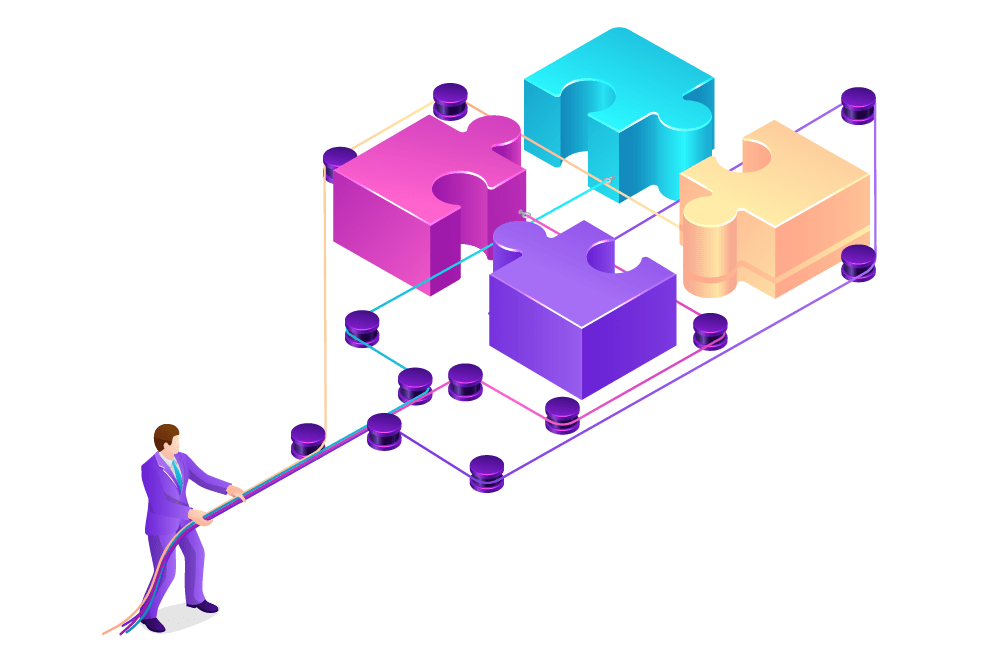Since its inception in the 1990s, business process services (BPS) have made significant advancements. It has been advancing continuously to meet the shifting requirements of enterprises. It is now an essential component of every business, and in the years to come, its significance is only likely to increase. Intelligent Process Automation was introduced, which is a major driver of its expansion (IPA). Organizations have been able to greatly increase the efficiency and effectiveness of their processes thanks to the usage of IPA in business process services.
Business Process Services (BPS) have a very bright future ahead of them. BPS has become crucial to assisting businesses in achieving their objectives as they work to become more effective and agile. Businesses will most certainly depend more on BPS in the upcoming years for a variety of jobs, such as customer experience consultancy, intelligent process automation, and business process automation.
Business process automation (BPA) is the use of robotic process automation tools, cloud computing platforms, and workflow management systems to automate business processes so they can be done more quickly without compromising quality standards. With BPA solutions, businesses have access to insightful information about how well each step performs within a particular workflow. This enables them to anticipate potential bottlenecks and maintain efficient operations at all times. Additionally, these solutions help businesses automate typical tasks, save time and money, and lower the risks connected to human error and mistakes made during the execution stage. Additionally, BPA can improve operational efficiency when integrated with current enterprise resource planning systems by delivering real-time visibility into every transaction occurring across intricate supply chain networks, enabling informed decision-making based on the most recent information available at any given time.
Robotic process automation (RPA) and artificial intelligence (AI) are two technologies that are used to create intelligent process automation. Software that automates routine, rule-based processes is known as RPA. It imitates human behaviour such entering data onto systems, conducting calculations, and logging in. On the other hand, artificial intelligence (AI) enables robots to learn from data and enhance their ability to make decisions. These technologies can be coupled to produce a potent tool that can automate entire business processes.
Artificial intelligence, machine learning, natural language processing, and robotic process automation are all components of intelligent process automation (IPA), a type of technology-enabled automation (RPA). Through the use of AI algorithms that learn from past performance data and human specialists that provide assistance across the whole process cycle, IPA enables businesses to automate repetitive tasks quickly and accurately. Employees can now concentrate on higher-value tasks like strategy development or product innovation rather than tedious ones like form filling or report generation, which eliminates the manual labor costs associated with conventional methods like document scanning or manual entry into spreadsheets or databases. Additionally, IPA offers higher accuracy rates since, as a result of its automated nature and AI/ML capabilities, human input errors are significantly diminished, if not completely eliminated.
Business Process Services can benefit from Intelligent Process Automation in several ways. The huge reduction in time and effort needed to finish repeated chores is one of the biggest benefits. As a result, resources are made available for more strategic jobs that call for human skill.
The capacity to increase process accuracy and consistency is one of the main advantages of intelligent process automation. Because it is not subject to human mistake, the software can carry out tasks with a higher degree of precision and accuracy. Better results result from a decreased likelihood of mistakes and oversights during the procedure.
Additionally, firms may become more adaptable and sensitive to change thanks to intelligent process automation. In the continually evolving corporate environment, the technology enables the quick and effective adjustment of business operations. Businesses need to be able to adjust to changes fast in order to stay competitive.
Another technology that has been making waves in the BPS sector is business process automation. The use of technology to simplify, improve, and automate business processes is known as business process automation. Business process automation aims to boost productivity and cut costs. Data entry, data extraction, and data processing are just a few of the operations that can be automated with business process automation. This can greatly minimize the time and effort needed to finish these jobs, freeing up time for organizations to concentrate on more important responsibilities.
Additionally, process accuracy and consistency are enhanced through business process automation. Better results result from eliminating the potential for human error-related mistakes and omissions. This can then improve the client experience and raise client happiness.
Consulting for customer experience is yet another essential component of business process services. The process of examining and improving consumer-business interactions is known as customer experience consulting. Customer experience consultancy seeks to give customers a satisfying and good experience that will boost their loyalty and contentment. The organization can benefit from customer experience consulting by making improvements to its website, customer service, and product designs, among other areas. The goal is to give the consumer a seamless and simple experience so they will be more likely to come back and refer the company to others.
Understanding how customers interact with the goods or services provided by your business will help you improve those interactions. Customer Experience Consulting may assist firms in finding opportunities to enhance customer service delivery and general satisfaction levels by utilizing data-driven insights from customer feedback surveys and other sources. This kind of consultancy aids businesses in creating plans for providing tailored experiences that satisfy customers’ expectations while boosting revenue.
Business Process Services can have a big impact on the company when Intelligent Process Automation, Business Process Automation, and Customer Experience Consulting are used. Businesses can save time, cut costs, and boost efficiency by automating procedures. Businesses may boost customer loyalty and happiness by enhancing the customer experience. Business process automation, a customer experience consultancy, and intelligent process automation all help organizations quickly respond to market changes and gain a competitive edge. Increased sales and profitability for the company can result from this.
With the ongoing advancement of technology and the rising demand for effectiveness and customer satisfaction, business process services have a bright future. Unlocking the potential of business process services will depend on the integration of intelligent process automation, business process automation, and customer experience consultancy. It will be crucial to use these technologies to optimize corporate processes and improve customer experience as firms continue to tackle the challenges of the digital age.
To sum up, Intelligent Process Automation, Business Process Automation, and Customer Experience Consulting are the three pillars of the future of Business Process Services. Businesses that do not adapt to these developments will fall behind as emerging technologies quickly transform how they function. Businesses can realize their full potential and boost revenue, profitability, and customer loyalty by utilizing these technologies and putting a strong emphasis on the customer experience. It’s time to embrace the future and realize all of Business Process Services’ potential.

